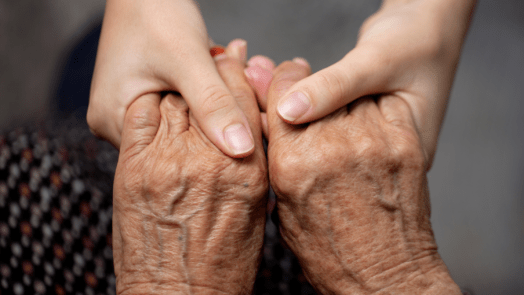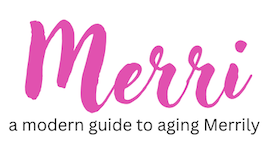Caring for an elderly parent can be one of the most rewarding yet challenging responsibilities. As I learned firsthand while caring for my mother, this role comes with emotional, physical, and financial demands. I hope sharing my experience will provide guidance to others navigating the path of caregiving for elderly parents, especially those planning to care for them at home. Finding a Caregiver for an Elderly Parent can bring new emotions and a new set of challenges we will discuss further in this blog.

Key Considerations for Caring for Elderly Parents
When I first became the primary caregiver for my mother, I found myself juggling endless tasks—from managing her medications to advocating for her with doctors. It was overwhelming at times, but it also taught me invaluable lessons about providing the best care possible.
The Emotional and Physical Challenges of Caregiving
Caring for an elderly parent can be emotionally draining, especially when watching their health decline. On top of that, the physical demands—helping them move, assisting with personal care, and constantly being alert—can take a toll on your well-being. I learned that it’s crucial to find time for self-care to avoid burnout.
The Importance of Advocacy for Your Elderly Parent
One of the most important roles you will take on as a caregiver is advocating for your parent’s needs. Medical professionals may have expertise, but you know your parent better than anyone. For example, I could tell when my mother had a UTI simply by her behavior, something the doctors couldn’t detect right away. Always trust your instincts and speak up for your parent’s well-being.

Understanding Medical Conditions in Aging Parents
Dealing with age-related health conditions can add complexity to caregiving. Learning about these conditions can help you provide better care and make informed decisions.
What Is Aphasia and How It Affects Communication
One of the most challenging aspects of caring for my mother was managing her aphasia. According to the National Aphasia Association, aphasia is a condition that impairs the ability to communicate. It can affect speech, writing, and comprehension. My mother’s inability to speak or gesture made it difficult to understand her needs, but with time, I learned to communicate with her through non-verbal cues and by being patient.
Managing Common Health Issues in Elderly Care
Beyond aphasia, elderly parents may face other common health issues like mobility problems, dementia, or heart disease. It’s important to stay informed about their conditions and work closely with healthcare providers to manage symptoms and create a care plan that fits their needs.

How to Hire Caregivers for Elderly Parents
While you may want to care for your elderly parent on your own, there may come a time when you need additional help. Hiring caregivers can provide the support you need, but finding the right person can be a challenge.
Finding Reliable Caregivers: CNAs and Elder Sitters
When we realized that my mother’s care was too much for us alone, we began searching for certified nursing assistants (CNAs) and elder sitters. After interviewing several candidates, we found that gut instinct and references were essential to finding the right fit. Good caregivers are hard to find, so when you do, make sure to keep them happy!
Interviewing and Hiring Tips for Caregivers
Here are some key tips that helped me hire caregivers for my mother:
- Check references: Always verify references to ensure the caregiver has a positive track record.
- Ask about specific experience: Make sure the caregiver has experience handling your parent’s particular medical needs, whether it’s dementia, aphasia, or mobility issues.
- Trust your instincts: If something feels off during the interview, it’s better to keep searching.
The Cost of Caregiving for Elderly Parents
The financial aspect of caregiving is often overlooked, but it can add significant stress. Understanding the costs and planning for the future will help alleviate some of this burden.
Managing Assisted Living and In-Home Care Costs
One of the biggest lessons I learned was that caring for an elderly parent at home is expensive. We initially believed we could handle my mother’s care ourselves, but eventually, we needed to hire caregivers, which added unforeseen costs. In addition, assisted living costs can be overwhelming, so it’s important to plan ahead.
Understanding What Medicare Covers and Doesn’t
It’s critical to understand what Medicare does and doesn’t cover. For example, Medicare does not cover home health aides for assistance with daily living activities such as bathing, eating, or moving. Long-term care insurance or veteran benefits can help offset some costs, but it’s important to know what’s available to you before you’re in crisis mode.
How to Choose an Assisted Living Facility
Deciding to move your elderly parent into an assisted living facility can be difficult, but sometimes it’s the best option for both their care and your peace of mind.
Key Questions to Ask When Touring Facilities
When looking at facilities, it’s essential to ask questions about staff-to-resident ratios, medical care availability, and daily routines. Trust your instincts—if a place doesn’t feel right, keep looking. The decision is a big one, and it’s worth taking the time to find the right fit.
Balancing Caregiver Guilt and Making the Right Decision
One of the hardest aspects of caregiving is the guilt. When we moved my mother to an assisted living facility, I questioned whether it was the right decision. However, I learned that you can’t do it all alone, and placing her in a facility allowed her to receive the specialized care she needed.
What You Need to Know About Hospice Care for an Elderly Parent
Hospice care can be an invaluable resource for families caring for a terminally ill elderly parent. For us, hospice care provided medical support, a daily caregiver, and a team that truly cared about my mother’s comfort and quality of life.
Hospice Services and the Benefits for Elderly Parents
Hospice care offers a range of services, from pain management to emotional and spiritual support. They also offer home visits, which was essential for us since my mother could not travel to a doctor’s office.
How to Navigate Hospice vs. Regular Medical Care
When considering hospice, know that Medicare covers hospice services, but you may need to stop certain other treatments. For example, we had to end my mother’s physical therapy once she entered hospice, but the care she received more than made up for the services we had to stop.
Final Thoughts on Caregiving for an Elderly Parent
Caring for an elderly parent can be challenging, but it’s also a journey filled with love and new memories. Whether you choose to care for your parent at home or decide on assisted living, the most important thing is to be their advocate and provide them with the best care possible. Planning ahead, understanding medical needs, and seeking help when necessary are key to making this time as comfortable and fulfilling as possible.
Frequently Asked Questions (FAQ)
How do I find caregivers for elderly parents?
You can find caregivers by contacting local agencies, asking for recommendations, or using online platforms like Care.com. Always check references and conduct interviews to ensure you find the right match.
Does Medicare cover caregiving services?
Medicare covers some home health services but does not typically cover long-term care for daily activities such as bathing, eating, or grooming. Explore long-term care insurance or veteran benefits for additional support.
How do I choose an assisted living facility?
When touring facilities, ask questions about staff ratios, medical care, and daily routines. Trust your instincts—choosing a facility is a significant decision, so take your time to find the right fit for your parent.

